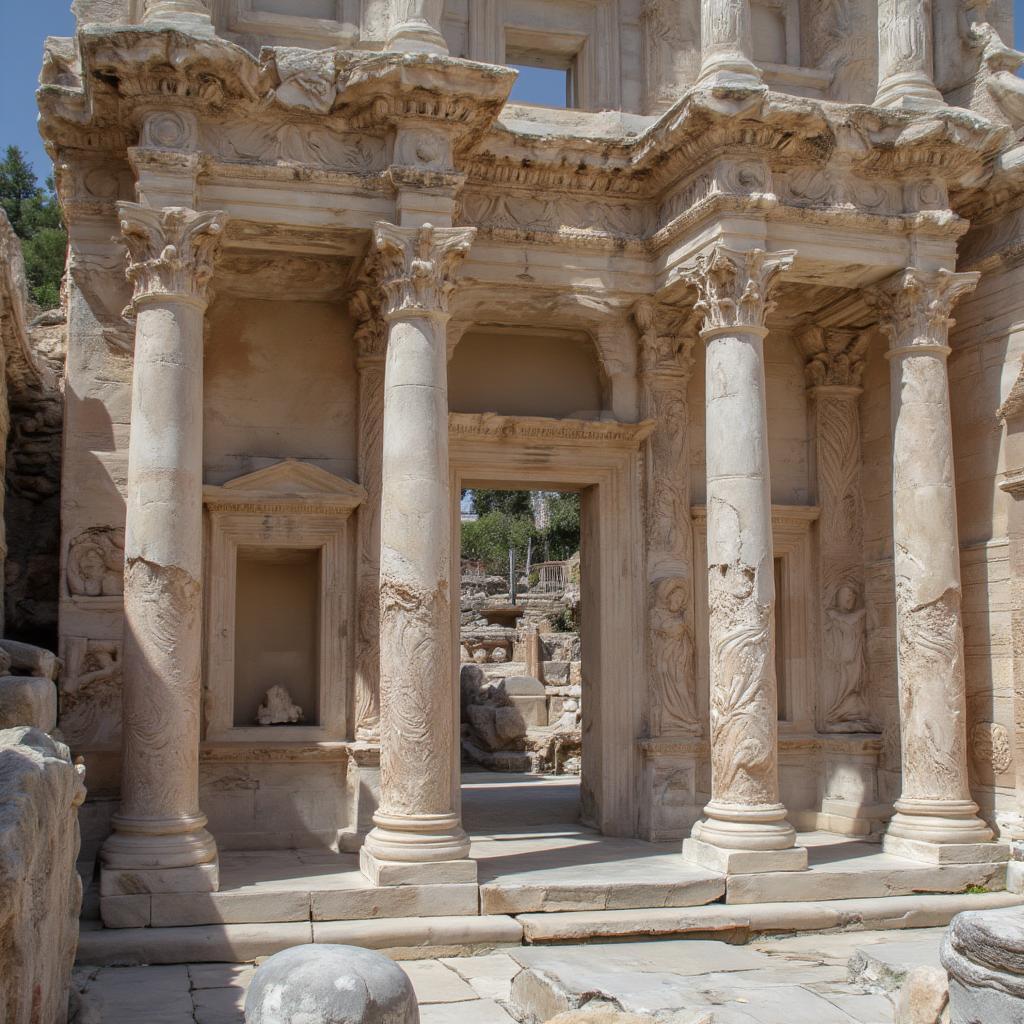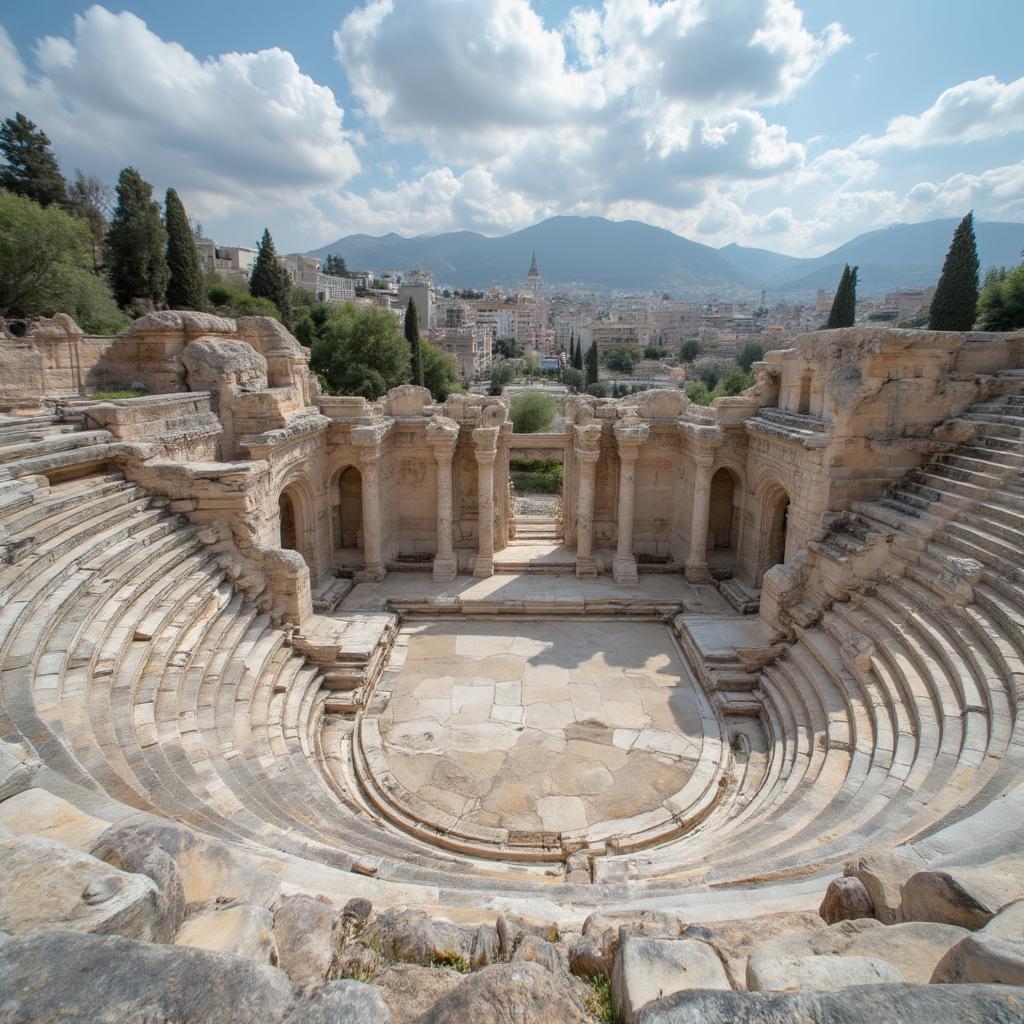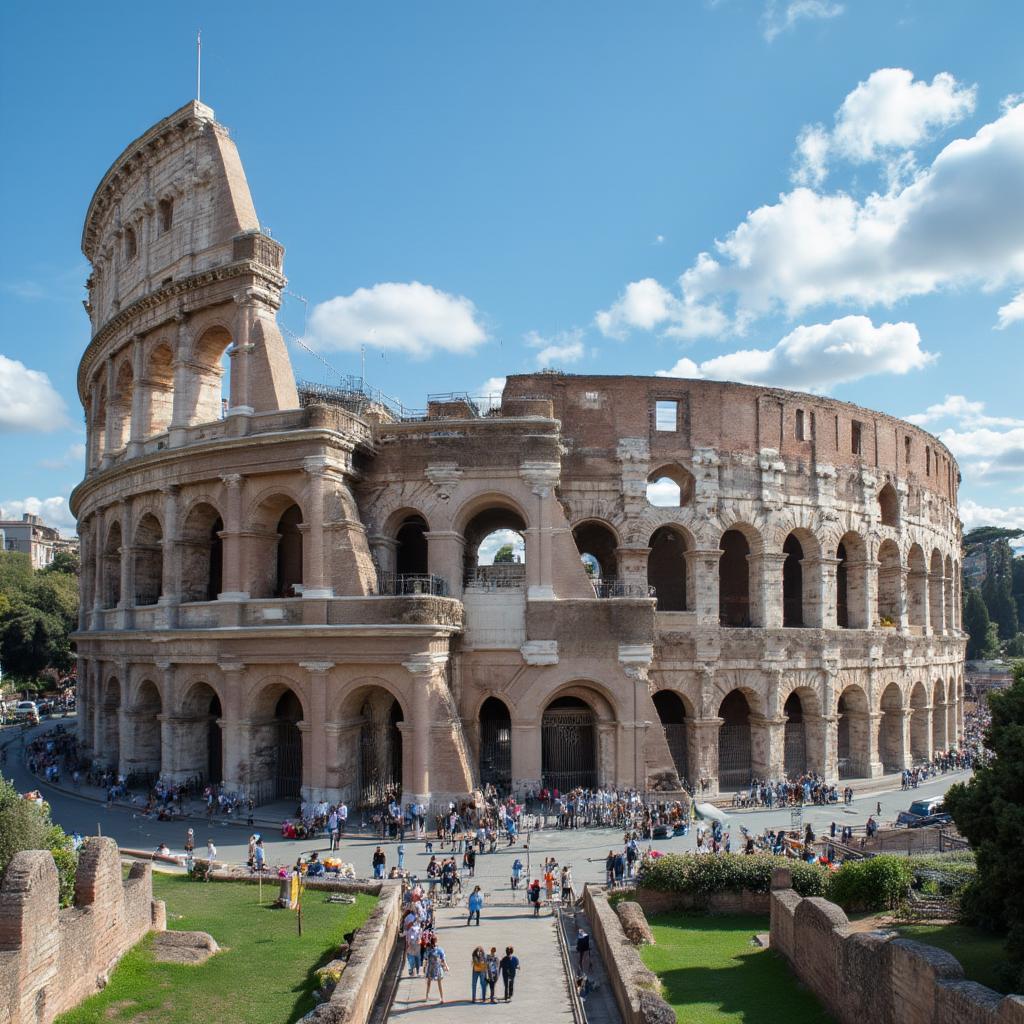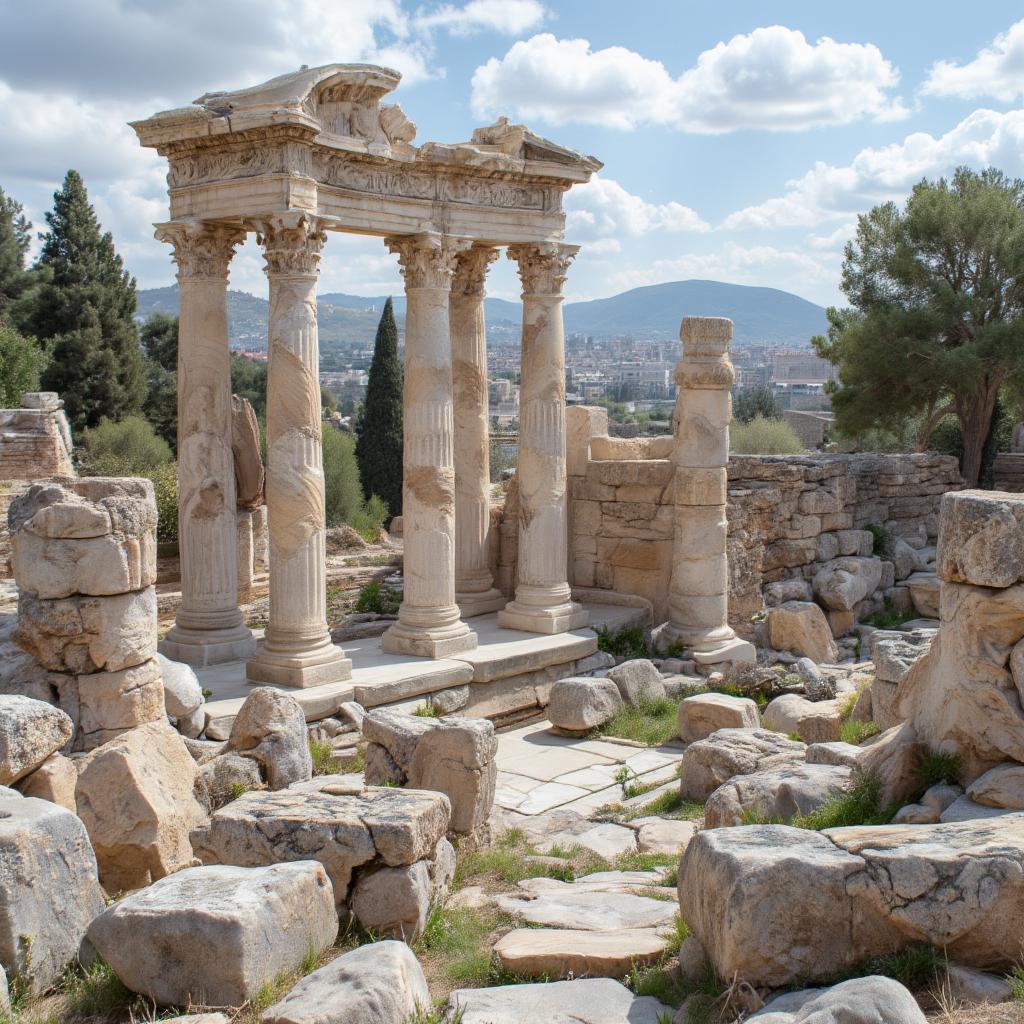Ephesus: A 7 Wonders Exploration of Ancient Greek Glory

Ephesus, an ancient Greek city on the coast of Ionia, stands as a testament to a bygone era of splendor and architectural prowess. Often mentioned in discussions about the 7 wonders, Ephesus captivates with its remarkably preserved ruins, offering a glimpse into a civilization that thrived for centuries. This article delves into the historical significance, architectural marvels, and cultural richness of Ephesus, exploring why it remains a source of fascination for historians and travelers alike.
While not officially one of the the 7 wonders of the old world, Ephesus’ grandeur and historical importance often place it in conversations surrounding these ancient marvels. Its impressive structures and rich history easily rival those officially recognized as wonders.
The Grandeur of Ephesus: An Architectural Masterpiece
Ephesus boasts an array of breathtaking structures, each a testament to the advanced architectural skills of the ancient Greeks. The Library of Celsus, with its imposing facade and intricate carvings, stands as a symbol of knowledge and learning. The Great Theatre, capable of holding 25,000 spectators, echoes with the ghosts of past performances and public gatherings. These architectural wonders, alongside the Temple of Artemis (one of the original Seven Wonders of the Ancient World), showcase the city’s dedication to artistry and grandeur. The city’s intricate network of streets, lined with shops and houses, offers a vivid picture of daily life in ancient Ephesus.
Was Ephesus One of the 7 Wonders?
Although the Temple of Artemis, located near Ephesus, was considered one of the Seven Wonders of the Ancient World, the city of Ephesus itself was not. However, the magnificence of its structures and its historical significance often lead to its inclusion in discussions regarding ancient wonders.

Ephesus and the Roman Empire: A City of Prosperity
Under Roman rule, Ephesus flourished as a major port city and a hub of trade and commerce. The city’s strategic location on the Aegean Sea facilitated its economic growth and cultural exchange. The well-preserved Terrace Houses, adorned with mosaics and frescoes, provide insights into the luxurious lifestyles of wealthy Ephesians during the Roman period. The city’s infrastructure, including its advanced plumbing and public latrines, highlights the sophistication of Roman engineering. Ephesus’s prosperity under Roman rule solidified its position as a prominent city in the ancient world.
What Made Ephesus so Important to the Roman Empire?
Ephesus’s strategic location on major trade routes, coupled with its excellent harbor, made it a crucial economic center for the Roman Empire. The city’s wealth and cultural influence contributed significantly to the empire’s overall prosperity. Similar to 7 wonders places of the world, Ephesus held a strategic location fostering trade and cultural exchange.
The Cultural Significance of Ephesus: A Melting Pot of Civilizations
Ephesus stood at the crossroads of East and West, attracting people from diverse cultures and backgrounds. The city’s religious landscape reflected this cultural diversity, with temples dedicated to various deities, including the Greek goddess Artemis and the Roman emperor. Ephesus was also a center of early Christianity, and the Apostle Paul is said to have preached in the city. The ruins of the Church of Mary, believed to have been built on the site of the Virgin Mary’s house, attest to the city’s Christian heritage.
“Ephesus’s enduring appeal lies in its ability to transport us back in time,” notes Dr. Eleanor Vance, a renowned archaeologist specializing in the Hellenistic period. “The city’s ruins offer a tangible connection to a civilization that shaped the course of Western history.”
How Did Different Cultures Influence Ephesus?
The convergence of Greek, Roman, and Eastern cultures in Ephesus resulted in a unique blend of traditions, architectural styles, and religious beliefs. This fusion of influences is evident in the city’s diverse architectural remains and its rich historical narrative. You can see parallels with discussions about 7 wonders of the world image with name where the influence of different cultures is often highlighted.

Ephesus Today: Preserving a Legacy for Future Generations
Today, Ephesus stands as a UNESCO World Heritage Site, attracting millions of visitors each year. Ongoing archaeological excavations continue to uncover new secrets about the city’s past. The preservation of Ephesus ensures that future generations can experience the wonder and grandeur of this ancient marvel. The site serves as a reminder of the importance of preserving our shared cultural heritage. Just like discussions about seven ajuba in world, the preservation of Ephesus highlights the significance of protecting historical sites for future generations.
“Studying Ephesus allows us to understand the complexities of urban life in the ancient world,” adds Professor Marcus Aurelius, a historian specializing in Roman urban development. “The city’s infrastructure, its social structures, and its economic activities provide valuable insights into the past.”
Why Visit Ephesus Today?
Visiting Ephesus offers a unique opportunity to step back in time and immerse oneself in the history and culture of one of the ancient world’s most significant cities. Walking through its well-preserved ruins provides a tangible connection to the past and a deeper appreciation for the achievements of ancient civilizations. You can explore more about the significance of ancient sites by researching ancient wonder.
In conclusion, Ephesus, though not officially one of the 7 wonders, remains a captivating destination that offers a profound journey into the past. Its architectural splendor, historical significance, and cultural richness continue to inspire awe and wonder, making it a must-see for anyone interested in exploring the legacies of ancient civilizations. A visit to Ephesus is a journey through time, an exploration of a city that once thrived as a center of culture, commerce, and intellectual pursuit. The echoes of its glorious past resonate within its ruins, inviting visitors to uncover the secrets of a bygone era. The 7 Wonders Ephesus connection, though informal, emphasizes the city’s enduring legacy and its rightful place among the greatest achievements of antiquity.




